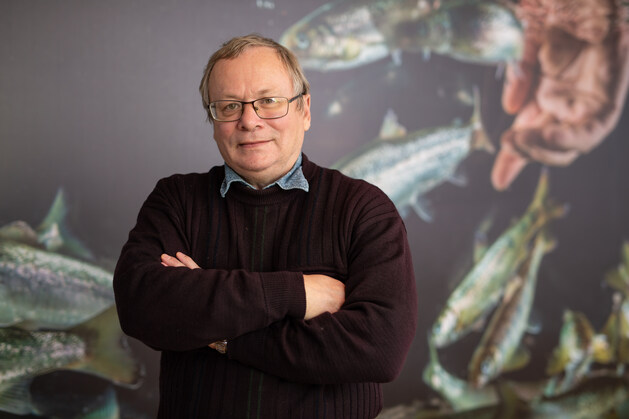Scientists have developed a health test for smolt

Salmon that have to adapt from a life in fresh water to a life in seawater need a robust immune system in order to make the transition. Nofima scientists have now developed a test that measures the immune status of salmon smolt.
Written by: Reidun Lilleholt Kraugerud in Nofima
The test can provide information that fish farmers will benefit from when transferring salmon to the sea. The results can help increase the smolts’ chances of survival. Every year, approximately 15 percent of farmed salmon die after being transferred from land-based freshwater tanks to net-pens at sea. Most of these fish die shortly after being transferred. Therefore, this test is very relevant.
What is the test?
It is a diagnostic test that measures the activity of 44 genes that are important for the immune system. A sample is taken from the gills or the dorsal fin without harming the fish.
“A few years ago, we found that the immune system was weakened during smoltification. As a result, we decided to develop a test to measure the immune status of salmon during smoltification”, says Aleksei Krasnov, senior scientist at Nofima.
In order to do that, Krasnov and his colleagues evaluated many genes and selected those that provided the most information about immune status. The scientists compiled large amounts of data from many different experiments performed in Nofima. Krasnov is not aware that anyone else has such a large and well-organised database of gene expression for salmon. The activity of the selected genes was analyzed on salmon from various fish farming sites, different groups of fish, and different environmental conditions. The scientists used this data to develop a database that provided the basis for the diagnostics of the immune status.
Gene activity reveals the body’s plan
The genes give ‘orders’ to the body’s cells to produce proteins that have a given function.
Genes may increase or decrease activity long before we can see changes in fish condition. Scientists measure activity of carefully selected genes for assessment of salmon immune status and health.
The scientists have found the normal activity level for each of the 44 genes in a fish of good condition. If the activity level is too high or too low, it may indicate poor immune status. This means that they can now offer tests for immune status in salmon smolt.
“We are able to see which fish are in good condition and which are not. In addition, we know which fish seem healthy, but in reality are not”, Krasnov says.
Industry representative, Dr Gordon Ritchie, who is Group Manager Fish Health & Welfare in Mowi ASA, is co-author on the latest article.
“The successful development of this novel technique provides companies with a new tool in the smolt quality assessment box, for verifying the immune competency and robustness of smolt before transfer to sea. This immune status diagnostic tool can also be utilized in future research projects on smolt performance and survival”, Ritchie comments.
Useful in other projects
Krasnov also sees the benefits of using the test in other research projects.
“We used the test in the CtrlAQUA research centre to test whether different ways of producing large smolt in closed recirculation facilities affect immune status before transfer to sea takes place. The test showed that immune status was the same for the different production methods. We also use the test in projects where the nutrition scientists investigate whether feed ingredients affect fish health”, says Krasnov.
He is happy to contribute more information to interested parties about how the industry can benefit from this new tool.

Engineer Marianne H.S. Hansen in Nofima’s lab have analysed large amounts of genetic material in order to build up a database of gene activity, which forms the basis for the test. Photo: Joe Urrutia © Nofima.
Facts about the research:
- The database was built up in the project called ‘Development of tools for assessment of the immune competence of Atlantic salmon smolts and growers’ funded by the Research Council of Norway.
- The work was published inmultigene expression a 2020 and was a milestone in the development of the test.
- A new publication this year confirms that the test works in practice.

